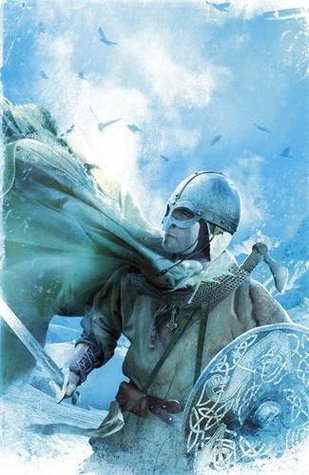To celebrate today’s release of the final book in the Gallow trilogy, The Last Bastion, Nathan Hawke has stopped by with a word on writing the series and writing in general AND to bring us another fantastic story of Gallow Truesword, Witches’ Reach.



Writers, as a breed, are a fairly neurotic lot. We used to keep it under wraps but these days we’re supposed to blog and tweet and generally smear our introverted selves all across the internet and so we do, buttering every platform of social media as thickly as we can in order to be heard. Or seen. Or at least, exist. As someone who’s other writing name auto-corrects to “dead,” I’m particularly keen on existing. Whatever our demons are, we’re obliged to share. Which is odd, because isn’t that what we were doing already? Only we were dressing our demons as monsters and dragons and vampires and engaging them on an imaginary battlefield of our choosing (frankly a considerable advantage) in order to kick the shit out of them, not that these victories ever last . . . And am I actually talking for anyone other me now? No matter.
When I started writing Gallow, I’d had enough of demons and enough stories of people triumphing over them, real or imaginary. They’re all very well, I suppose, as something to aspire to, but if you’re constantly fighting a particular demon of your own, they’re just depressing: oh look, another someone else managed to do what I can’t. That sort of thing. That’s part of the reason that Gallow, the hero of The Crimson Shield, Cold Redemption and The Last Bastion (published 12th September, so they’re all out now, hint hint) is the way he is. He doesn’t really have demons, he doesn’t really have self-doubt and he’s not afraid of monsters. Mostly he just wants to be left to get on. Enough of fighting demons; no, Gallow has other choices to make. See, you don’t need demons to put a character into conflict. Or a real person, for that matter.
Anyway, I realised some time after I’d finished that I’d slipped in a demon after all, though it only really shows up in The Last Bastion. Here’s a short story that sort of explains how it got where it got and, perhaps more to the point, how it got out again. It’s the last of a series of twelve shorts that fill in pieces of the background and you’re welcome to share in it. For the rest, go hunt the interactive map over at www.nathanhawke.com.
Witches’ Reach
The wagon drove slowly over the new road the Aulians had built. It ran from where they were still constructing their mountain castle to where a freshly raised tower looked out over the rush of the Isset gorge and beyond. Another few miles along the river past the tower, where the gorge was narrowest, they’d already erected an immense scaffold that stretched right across the water. They were building a bridge, or so they said. Missa had gone to look at it last week and taken a right earful and almost a beating for wandering so far, but it had been worth it. She’d never seen a thing like it. Men hanging from ropes a hundred feet up in the air over the roaring water, and stones the size of houses being slowly levered and rolled down the road and lined up along the bank. They were building a stone arch and they’d nearly finished it, but when she’s asked one of the Aulians if that was the bridge, they’d only laughed at her and said no, the arch was only the beginning, and something about it being there to support a second arch, and that second arch itself only being built to support the construction of last and much greater arch that would support the bridge itself. It left her wondering if she’d be old before it was done but the laughing stonemasons said no, it might take another year or a bit more depending on the winter, but then it would be done and they could all go home.
She crept from her perch looking down on the road and ran after the wagon as far as the tower. It was full of what looked like sand, except it was clumpy and coarse and an odd pale colour, a sort of off-white brown. Every time the wagon took a bump or a rut in the road, it shook and some of the sand fell off. She picked up a handful of it and took a closer look and found it stuck to her damp fingers; and when she sucked at them a few minutes later, they tasted of salt. She put some in her mouth to see and that’s what it was. Salt. A wagon full of priceless salt. After that, she made sure to scoop up whatever fell out.
A dozen workmen were waiting outside the tower. They already had shovels and as soon as the wagon stopped they started scooping the salt into sacks. Missa watched a while until she was bored. She was about to leave when she saw that there was something hidden under the salt, slowly being uncovered.
It took them another hour to clear it out. What was left was a body – at least, it had two arms and two legs and a head. Missa supposed it was some sort of soldier since it was dressed from head to foot in armour made out of plates of dark metal. The workmen put down their shovels and set about dragging the body off the wagon and into the tower. It took all twelve of them to carry it, resting on a sturdy plank of wood that in turn rested on their shoulders. When they were inside, Missa slipped after them. No one paid her much attention. There weren’t many children out here in the valley and the few there were tended to get treated well by the soldiers and the stonemasons. Reminded them of home, they said, where they all fervently wished they could be.
The procession moved through the tower’s open hall and down a set of spiral steps. It took a good long time to manage that, with a great deal of swearing and cursing, and then there was another one, a lot longer than the first. It ended in an odd room, hexagonal, with the stairs through the centre and six stone benches set one into each wall, one for each of the Ascendants and each with an alter except for one, where instead of a wall there was a wide circular opening. The men were already carrying the body inside. When Missa moved to follow them, one turned back and shot her a warning glance. “No, Missa. Wait out there. This isn’t for you.”
There were more men inside and so Missa hung in the doorway and craned her head to see what they were up to, but when the workmen put down the body and came back out, they shooed her away. They went back up and carried their sacks of salt down into the tomb and then came out again. Missa waited until they were back to whatever else it was they were supposed to be doing and then again crept in to look, but by now the men inside the tomb were done and were coming out. They frowned at her when they saw her but they didn’t send her away like the others and so she stayed, pressed against the back wall, watching. As the soon as the last man came out, they all started to work on dragging a stone across the opening to block it, and she saw that the stone was a door, rolling sideways across the gap between two walls as thick as she was. To the right of the rolling door, four burnished bronze wheels stuck out of the wall, each engraved with symbols. There were six signs on each wheel, animals, the totems for each of the six Ascendants who stood guard over the empire. She stared at the way the wheels were set while the men wrestled with the stone. Snake, dragon, bear, fish.
The men finished moving the stone and stepped away, catching their breath with an air of relief and satisfaction as though they’d finished some great work they’d never quite been sure wouldn’t go terribly wrong. One of them, the oldest, went to the bronze wheels and turned them all a few careless turns. It puzzled Missa when the men all went back to trying to move the stone to open the door again, puzzled her even more when it didn’t budge and more still when the men stopped and grinned and laughed as though that was exactly the way things were supposed to be. They filed off up the stairs, carrying their lanterns with them, and Missa hurried after, not wanting to be left alone in the dark. She didn’t know what she’d seen, but no one had minded her seeing it so at least she wouldn’t be in any trouble. The door and the bronze wheels were interesting though, and she found herself thinking about them as she left.
Later that day she decided she’d play a game and pretend she had her own special door with its odd lock. She scratched a circle on a wall of rock to pretend to be the door and four more circles to be her bronze wheels, and then scratched a little symbol by each one, the way they’d been when she’d first seen them before the men had closed the tomb. Snake, dragon, bear, fish.
“There,” she said to the rock. “And now you’re open and I can go in,” and she danced off, imagining what might be on the other side.
She forgot about her pretend door soon enough and the real one too and moved on to other things as children always do, but the rock never forgot the marks she’d scratched into it. It held them patiently and bore them on its skin long after Missa was gone, long after the last Aulian followed, long after every man in the valley had forgotten what deadly thing was buried so carefully under Witches’ Reach.
Grab a copy of the books:
 Nathan Hawke is a pseudonym for British writer Stephen Deas. He has worked variously in the city, as a consultant to the police and to the services. He has travelled in the far east, worked for a time in Las Vegas, was briefly involved in video game design, and once skied off a mountain under a parachute for a bet. His current ambitions include rafting the Colorado River and walking the Milford Track.
Nathan Hawke is a pseudonym for British writer Stephen Deas. He has worked variously in the city, as a consultant to the police and to the services. He has travelled in the far east, worked for a time in Las Vegas, was briefly involved in video game design, and once skied off a mountain under a parachute for a bet. His current ambitions include rafting the Colorado River and walking the Milford Track.
